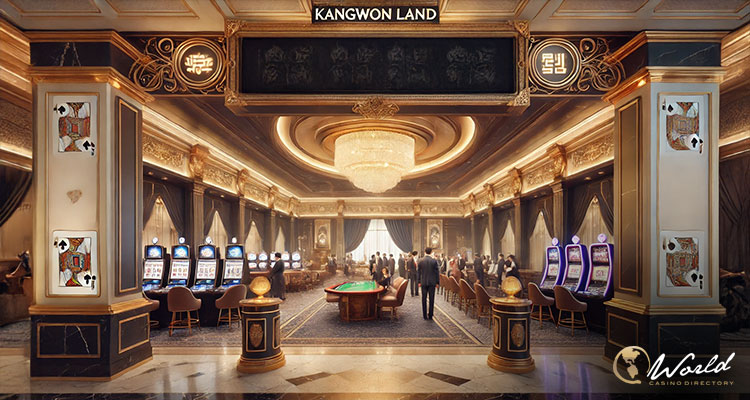In an effort to cater to its growing foreign clientele, Kangwon Land, South Korea’s only casino that permits local patrons, has launched a pilot program for a dedicated “Casino Zone for Foreigners Only.” This initiative is a result of the approval granted in September 2024 to modify the casino’s operating restrictions. The aim is to make the experience more tailored to international visitors while expanding the resort’s overall appeal.
Changes in betting limits and staffing to improve visitor experience:
The casino has already made significant changes to accommodate this new venture, such as increasing the betting limit from 100,000 won (roughly $70) to a substantial 20 million won ($13,800) during the pilot phase. Future plans include an even greater expansion, with a proposed betting limit of 300 million won (approximately $207,000) once the program is fully operational. Additionally, Kangwon Land will prioritize hiring employees proficient in foreign languages to better serve its international visitors.
Kangwon Land’s Acting CEO, Choi Chul-kyu, emphasized that the creation of this exclusive zone is a strategic move to provide foreign tourists with a more convenient and tailored casino experience. As Maeil Business Newspaper reports, Choi shared, “We have set up and operated a dedicated casino zone so that foreign tourists visiting Kangwon Land can use the casino more conveniently.” The CEO also expressed the company’s commitment to bolstering its standing as a premier global resort destination. He further noted, “We will continue to expand the number of foreign visitors this year to enhance our status as a global complex resort and contribute to revitalizing the national tourism industry and the economy of abandoned mines.”
Kangwon Land has seen encouraging growth in the number of foreign visitors in recent years. In 2024, over 24,000 foreign tourists visited the casino, marking a 5.8% increase from the previous year’s total of 22,983 visitors. This uptick is part of a broader strategy to expand the resort’s international reach, reflecting its ambitions to position itself as a key player in global tourism.
In addition to the foreigner-exclusive gaming zone, Kangwon Land is also undertaking a significant $128 million investment to expand its facilities. The company plans to build a second casino site, which will include an expansion of the gaming floor from 14,512 square meters to 20,260 square meters. With this development, the number of gaming tables will rise by 50 to 250, and machine units will increase to 1,610 from the current 1,360. These upgrades are intended to alleviate overcrowding at the existing facility, enhancing the overall experience for visitors.
Future Expansion and High Hopes for Tourism
As part of its broader vision for growth, Kangwon Land’s $1.78 billion development project also includes plans to increase the scale of its operations and create a more dynamic and enjoyable environment for patrons. The expanded casino will cater to a wider array of games and experiences, helping to solidify Kangwon Land as a prominent destination for tourists seeking a high-end, global resort experience.
The expansion plans are not limited to just the gaming side of the business. The company has invested in significant upgrades to its infrastructure to ensure a seamless and enjoyable experience for guests. With a continued focus on attracting international tourists, Kangwon Land hopes to play a central role in revitalizing South Korea’s tourism sector, particularly by drawing in visitors who can contribute to the local economy.
In his remarks, Acting CEO Choi emphasized Kangwon Land’s commitment to enhancing its status as a global resort destination, saying, “We will continue to expand the number of foreign visitors this year to enhance our status as a global complex resort and contribute to revitalizing the national tourism industry.” The casino’s executives are hopeful that this renewed focus on international tourism will bring positive results and economic benefits to the area, particularly in regions that are looking to recover from the decline of local industries such as mining.


